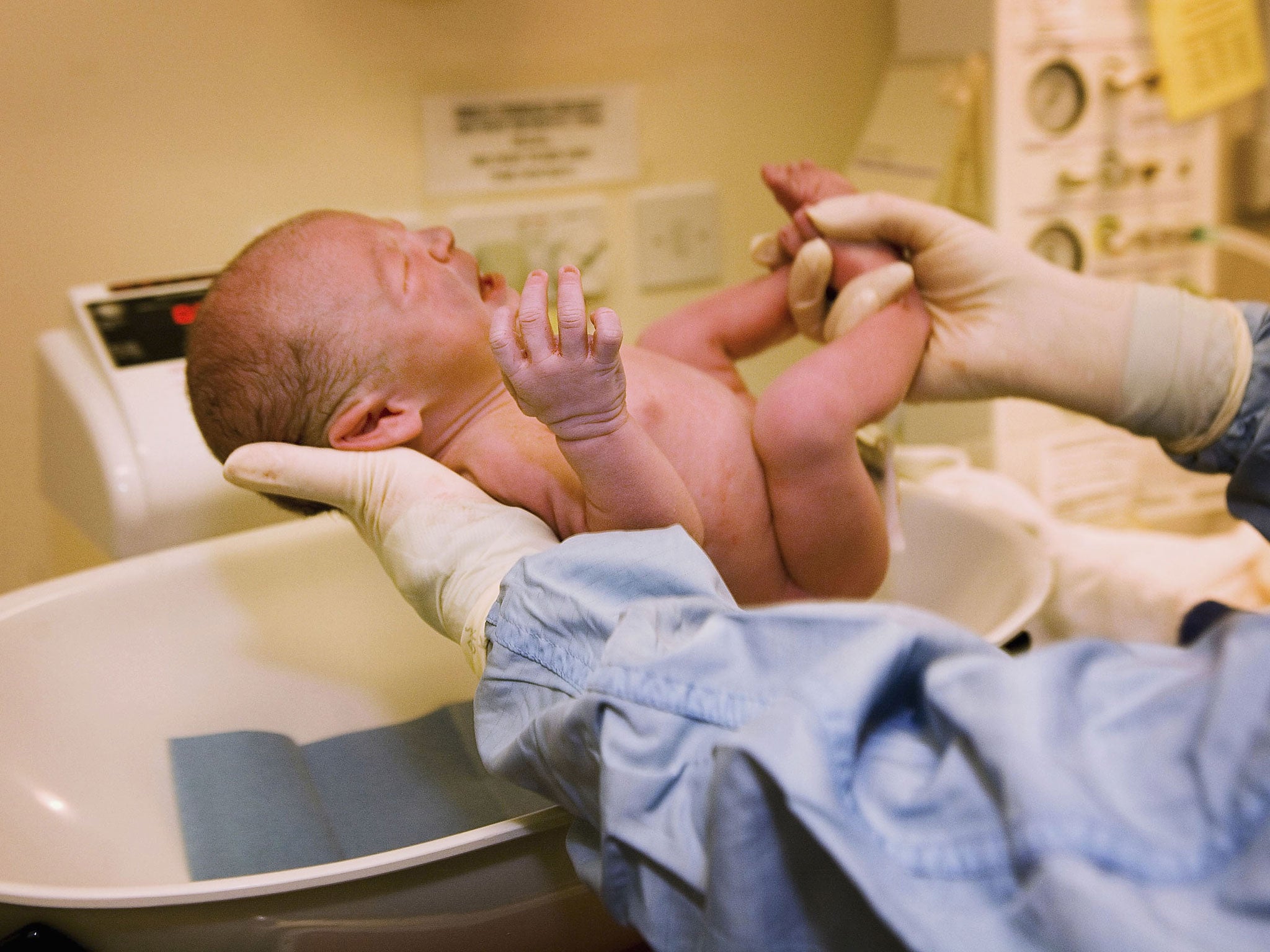Mothers who endured severe injuries in childbirth say ‘wounds harmed relationship with child’
‘Nobody warns you that having a child can leave you with life-changing injuries,’ says mother

Your support helps us to tell the story
From reproductive rights to climate change to Big Tech, The Independent is on the ground when the story is developing. Whether it's investigating the financials of Elon Musk's pro-Trump PAC or producing our latest documentary, 'The A Word', which shines a light on the American women fighting for reproductive rights, we know how important it is to parse out the facts from the messaging.
At such a critical moment in US history, we need reporters on the ground. Your donation allows us to keep sending journalists to speak to both sides of the story.
The Independent is trusted by Americans across the entire political spectrum. And unlike many other quality news outlets, we choose not to lock Americans out of our reporting and analysis with paywalls. We believe quality journalism should be available to everyone, paid for by those who can afford it.
Your support makes all the difference.Some 85 per cent of mothers who endure severe injuries while giving birth say the wounds profoundly damaged the relationship with their child, new research has found.
The study, conducted by MASIC, which supports women who suffered injuries in childbirth, found 14 per cent of women who experienced such injuries said the damage to the bond with their child was permanent.
While one in four said the injuries resulted in them regretting their decision to have a child and a third said they viewed their child as causing the wound. Three in 10 said they feared their child would fare better without them.
Jen Hall, a spokesperson for MASIC who suffered injuries while giving birth, said: “These findings are shocking, but they do not surprise me.
“When I gave birth, I experienced a brutal forceps delivery which left me with a serious injury. Like so many other women, this affected my experience of being a mother and has impacted both my physical and mental health.
“Nobody warns you that having a child can leave you with life-changing injuries and no woman should have to go through this without support and proper medical care. Most of these injuries are entirely preventable. That is why MASIC is calling on the government and the NHS to roll out a programme of training for medical professionals.”
She said this would allow the NHS to save millions in “costly damages” as well as stopping “untold pain and misery” for mothers, partners and children.
Half of the women who said their childbirth injuries impacted the mother-baby bond said it made them fear their capacity to raise their child.
Researchers, who polled 325 women who have suffered severe perineal trauma during childbirth, warned mothers with third and fourth-degree tears experience the “ultimate taboo” of faecal incontinence.
Women also experience life-changing injuries which have repercussions on their physical and mental health, capacity to work as well as impacting relationships with their partner.
Campaigners noted women are in no way to blame for the birth injuries they endure and the wounds are generally a by-product of problems occurring during the actual childbirth or linked to a failure to pinpoint risk factors in pregnancy.
Previous research found up to one in five mothers are grappling with the repercussions of severe perineal tears suffered while going through childbirth.
A 2018 report found a quarter of women still experience symptoms of anal incontinence five years after giving birth. But many women fail to get treatment for the symptoms due to being too ashamed to pursue medical treatment, researchers warned.
Professor Mike Keighley, president of MASIC and leading colorectal surgeon, said: “Birth injuries are an unspoken taboo and this needs to change. All too often women don’t feel comfortable talking about them to their GP - even when they do some GPs don’t know how to help.
“We need better training for healthcare professionals so these injuries can be prevented. We also need improved awareness of how common they are, so the taboo can be broken and fewer women are forced to suffer in silence.”
The research found three quarters of women said they suffer enduring physical pain and almost half said the injuries stopped them from going out and about. Nearly a third had to go through additional or ongoing surgery.
Sanja Strkljevic, who works for Leigh Day, a law firm working alongside MASIC, said: “We hear from women who have suffered terrible physical injuries and emotional trauma from childbirth and it is crucial that lessons are learned every single time something goes wrong so that instances of these injuries can be prevented or reduced.”
It comes after a recent study found a quarter of mothers say their choices were not respected during childbirth, with some left with life-changing injuries as a result, despite Britain’s highest judges establishing women should be the primary decision-makers during labour five years ago.
The poll of 1,145 women, carried out by leading pregnancy charity Birthrights and shared exclusively with The Independent, also found that a third said healthcare professionals did not even seek their own opinions on the childbirth process, while 14 per cent said their choices were overruled.
One woman said she had been forced to give up her career as a lawyer following what she described as a “violent delivery”, while her baby daughter also sustained serious injuries to her face which can still be seen now – 12 years after she gave birth.



Join our commenting forum
Join thought-provoking conversations, follow other Independent readers and see their replies
Comments